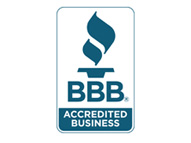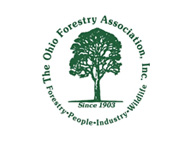Now, with the advent of safety regulations, improved equipment, and increased knowledge, workplaces are much safer with as few as 12 fatal injuries per day compared to 38. With increased education and development of safer machinery, those numbers could decrease even more.
Roger Miller is the safety manager at Yoder Lumber, a third-generation family-owned manufacturer of hardwood products in the heart of Central Ohio. Yoder Lumber manufactures all types of hardwood products at three manufacturing locations in Ohio as well as at their veneer-grade log division in West Virginia.
Miller has been with Yoder Lumber for 40 years. In fact, he and the company’s owner, established Yoder Lumber’s safety program in the early 1970s. He has seen a lot of advances in workplace safety over the years, the biggest of which has been advances in the equipment itself. Miller says the company’s modern equipment and safety-focused business practices have helped make them the kind of safe workplace environment that recently earned them an award from their local Chamber of Commerce for 600,000 hours worked without a lost-time injury.
Part of that comes from keeping all machinery up to date with OSHA standards for guarding and safety devices and installing state-of-the-art computerized machines that won’t run if guards and housings aren’t in place as well as updating equipment to use lean manufacturing wherever possible.
“Some equipment is almost foolproof,” Miller says. “If you move a guard, the machine won’t work.”
In the early 70’s, Miller remembers, everything was manual—if there was an issue, you had to shut down the machine, take off the guard, fix the problem, replace the guard correctly, and power the machine up again.
“Now,” he says, “you just lift a lid and the machine shuts down itself.”
But Miller says, even with these modern machines, the most important and effective tool against workplace injury is education.
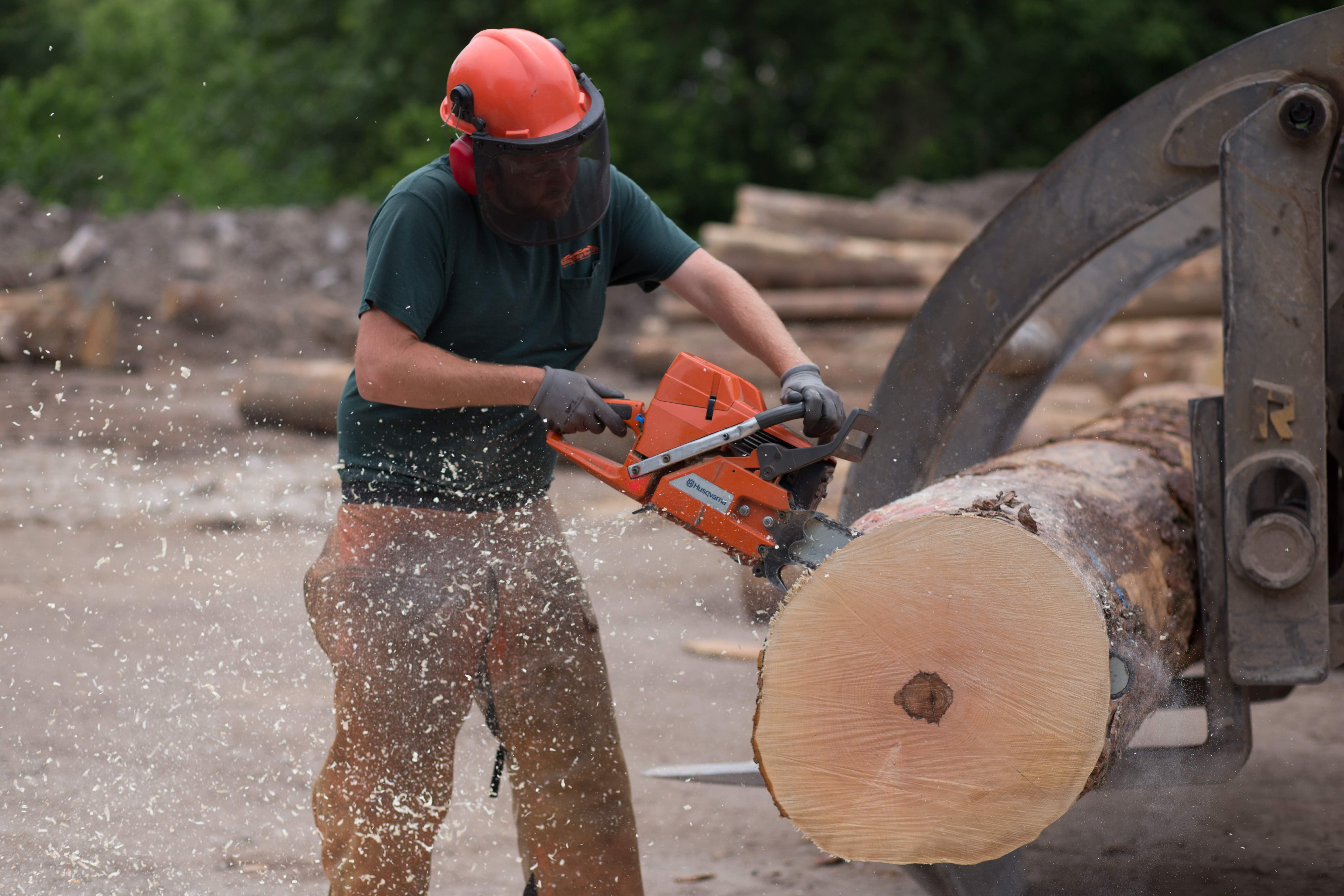
“In some ways, I think modern machines can be too fool proof,” Miller says. “Workers assume they can’t get hurt and get complacent. I tell workers, ‘You have to respect the machine, because the machine won’t respect you. It doesn’t care about you. It doesn’t have a heart. You have to take the responsibility to keep yourself and others safe.’”
That’s where safety training comes in. Yoder Lumber emphasizes safety in the workplace with monthly safety meetings to present all the safety issues the government mandates, like hazardous materials, proper lockout/tagout practices and procedures to safeguard workers from the release of hazardous energy, and hands-on fire extinguisher training. In addition, a safety committee at each plant ensures equipment, signage, and practices are kept up-to-date, all guards are in place, and that they respond to safety issues right away.
“The main thing we’re concerned about is keeping workers safe and sending them home the way they came to work—uninjured,” Miller says. “We’re constantly educating them to use the personal protective equipment, safety glasses, hearing protection, and gloves provided by the company.”
Workers at Yoder Lumber can opt for standard safety glasses or they can purchase prescription safety eyeglass with the company reimbursing the difference between their regular glasses and safety lenses. The company also allows workers to choose the type of ear protection they prefer, whether plugs or ear muffs.
All of this training happens from the day a new hire steps on site.
“We require new hires to complete a safety orientation before they even start working,” Miller says. “I stress not to do things in a hurried manner, because that’s when accidents happen.”
When an accident does takes place, the company’s first priority is to care for the worker. Trained first responders are on-site to provide first aid and assess the injury and call the medical squad. Then the company will investigate what happened and how and determine what can be done to alleviate that type of injury in the future.
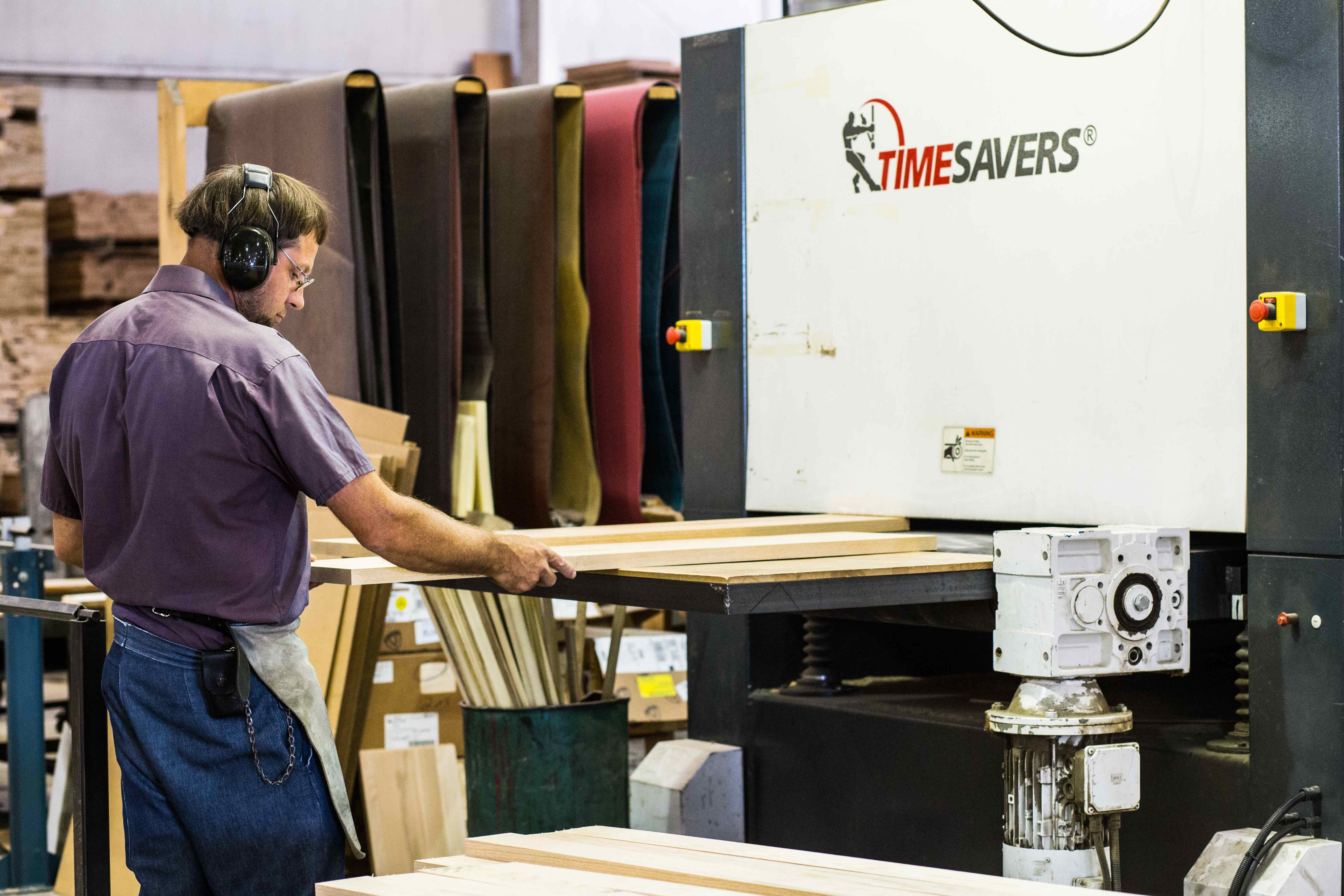 Daniel Graber, 32, is one of Yoder Lumber’s first responders. He has been a machine operator for eight months and recently completed first aid training in basic first aid, CPR, and identifying injuries. He has also completed the company’s forklift training program. Though he had been previously licensed by another company, the most recent training he received gave him insight into forklift safety he hadn’t previously considered. One example would be the three-point rule for entering and exiting equipment, which means having one hand and two feet, or two hands and one foot on the equipment at all times. He also learned the basics of driving safely, when to use the horn, not carrying passengers, and how to safely load, stack, and drop a forklift load.
Daniel Graber, 32, is one of Yoder Lumber’s first responders. He has been a machine operator for eight months and recently completed first aid training in basic first aid, CPR, and identifying injuries. He has also completed the company’s forklift training program. Though he had been previously licensed by another company, the most recent training he received gave him insight into forklift safety he hadn’t previously considered. One example would be the three-point rule for entering and exiting equipment, which means having one hand and two feet, or two hands and one foot on the equipment at all times. He also learned the basics of driving safely, when to use the horn, not carrying passengers, and how to safely load, stack, and drop a forklift load.Soon, Graber will attend a lumber grading course to prepare for his role of grader.
“The grader is the person in charge of grading and stacking,” Graber says, “but they also have to be safety conscious since they’re responsible for their stackers and trimmer operators.”
Part of the grader's job is to make sure the trimmer operator knows when to move blades and doesn’t overload the stackers to allow for time to grab boards. The grader also ensures stackers aren’t haphazardly throwing boards on stacks or inadvertently getting into each other’s way.
“It’s fairly challenging,” Graber says, “because you’re moving literally tons of lumber, and if someone isn’t safety conscious, it’s easy for someone to get hurt. If a lift driver hits the brakes at the wrong time, that can scatter boards and someone could get hurt. It’s just a matter paying attention. Using common sense covers most of it.”
Graber says Yoder Lumber’s management is very good at making sure everyone’s on board with maintaining safe workplace practices.
“The training programs here at Yoder Lumber are excellent,” Graber says. “When you come here, you can choose the path your career with take by choosing the necessary training for the job you want.”
Fire prevention is crucial in a lumber yard. At Yoder Lumber, spark resistors are installed in dust collections systems to avoid the possibility of a spontaneous combustion in a dust cloud. Smoking is never allowed in any building. The company’s insurance requires that a hot works program is in place when working on a machine to test for flammable gases that could result in fire. Fire extinguishers are well-marked and maintained beyond OSHA standards, all exits are marked, and evacuation plans are up-to-date and prominently displayed.
Roger Miller says the most difficult part of his job is being an advocate for proper safety practices and educating workers that safety procedures are established for the employees own protection.
“The biggest challenge is to make sure young employees are wearing their safety equipment,” Miller says. “The younger workers seem to think they’re invincible. They think an injury can’t happen to them.”
But it can happen to them. The injury rate for young workers under age 25 is approximately two times higher than for workers 25 years and older, based on emergency room data. At Yoder Lumber, younger workers experience minor injuries like pinched fingers more often than older workers, sometimes because they’re trying to learn a new job, but often from being impatient and hurried.
“We train workers to run a machine correctly, lift correctly, and wear personal protective equipment because we care about our employees,” Miller says.
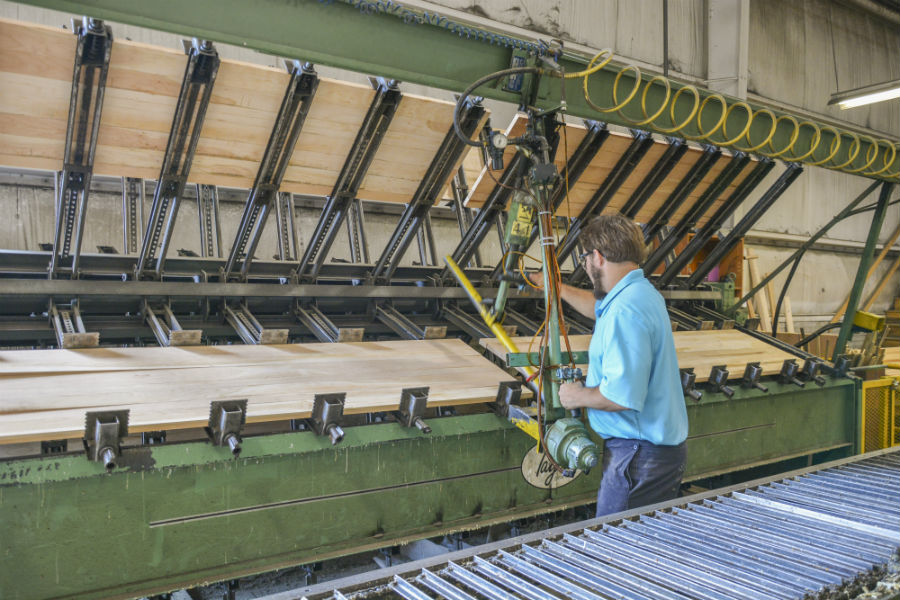
Under the OSHA law, employers have a responsibility to provide a safe workplace which means providing a workplace free from serious recognized hazards and complying with the standards, rules and regulations issued under the Occupational Safety and Health (OSH) Act of 1970. Among other things, U.S. employers must conform to OSHA standards, that their employees use safe tools and properly-maintained equipment, provide safety training in a language and vocabulary workers can understand, and not discriminate against employees who exercise their rights under the Act.
“All companies should be concerned about employee safety,” Miller says. “Not following safe workplace practices puts workers at risk, but also risks fines that will cut into the company’s profits. Every injury means higher workers’ compensation premiums, OSHA involvement and more.”
Miller says safety also assists with hiring and maintaining workers.
“The workforce is limited, and finding good, reliable help can be difficult,” Miller says. “By providing a safe and healthy work environment for our employees, we are thankful to have built a solid reputation in our local community.”





